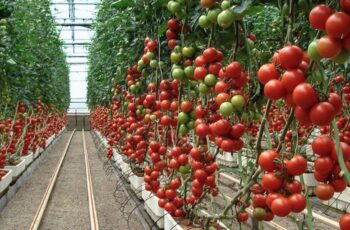Ad Blocker Detected
Our website is made possible by displaying online advertisements to our visitors. Please consider supporting us by disabling your ad blocker.
Companion planting is a well-known technique that involves growing different plants together for their mutual benefit. Carrots, like many other vegetables, require the right companions to help them grow and flourish. However, some plants are not good companions for carrots as they can attract pests, and diseases or hinder their growth.
Here are some plants you should avoid growing with carrots:
Dill
Although dill is a great companion plant for many vegetables and herbs, it does not go well with carrots. It releases toxic compounds that can stunt the growth of your carrot vegetable. Moreover, cross-pollination between carrots and dill can result in poor hybridization, and parasitic insects can destroy both plants.
Fennel
Fennel is known to release chemicals that can hinder the growth of other plants, including carrots. It is also prone to attract pests that can harm your carrot crop. Therefore, it is best to keep fennel away from your carrot garden.
Parsnip
Parsnips are not compatible with carrots as they can infest them with pests. Keeping parsnips away from your garden is the best option to prevent any harm to your carrot crop.
Celery
Although both vegetables, carrots, and celery are not good companions. Carrot flies a major pest of carrots, can be attracted to the celery plant, resulting in the destruction of your vegetable root crop.
Potatoes
Growing two root crops like potatoes and carrots together can result in competition for excessive phosphorus. It is best to avoid planting them together to ensure that your carrot crop grows optimally.
By avoiding planting these plants with your carrots, you can increase the chances of a bountiful and healthy harvest.
Last Word
Growing carrots can be a rewarding experience if you follow the proper planting techniques and care for the vegetable. As carrots are highly susceptible to pests, it is important to monitor them regularly. However, by utilizing companion planting techniques, you can reduce the risk of pest infestations and promote a healthier harvest.
Companion planting not only helps deter pests but also increases the nutrient content of the soil and improves overall crop health. By planting cover crops like legumes, using herbs like rosemary and thyme, and avoiding planting incompatible crops like fennel and potatoes, you can ensure that your carrot crop thrives.
Remember that proper soil preparation, adequate watering, and regular weeding are also essential components of successful carrot cultivation. With the right care and attention, you can enjoy a bountiful harvest of this nutritious and versatile vegetable.
[mashshare]

